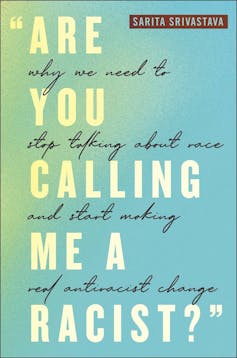Last week, police descended on the University of Calgary campus with riot gear like shields, tear gas, batons and rubber bullets to forcibly remove protesters from an encampment set up on campus. According to the University of Calgary, the community has the right to free speech and protest, but temporary structures and “overnight protests are not permitted” due to safety concerns. The university said students were given a written trespass warning.
The encampment was one of many that have sprung up on university campuses across North America (and globally), as student protesters demand action from their governments and universities on the atrocities in Gaza.
Their demands include calling on their institutions to financially divest assets tied to Israel or connected to companies supplying weapons and technology to Israel’s government.
Collectively, they are one of the largest mass protests in recent history.
At the heart of it is: 1,200 Israelis killed by Hamas and 250 taken hostage on Oct. 7 and the subsequent and ongoing attack on Gaza by Israel. According to the United Nations, that onslaught has resulted in the killing of 35,000 Palestinians and famine conditions for the majority of Gaza.
What we’re seeing across the country are thousands of students risking their future, refusing to stop speaking their minds and demanding more ethical actions from their governments and universities.

In many cases — including at the University of Calgary, as well as Columbia University in New York City, the University of Pennsylvania and MIT in Cambridge — we’ve watched police descend, sometimes using violence to disperse demonstrators.
It’s been hard to watch for a lot of us. But Pratim Sengupta didn’t just watch it — he lived it. He is a professor of learning sciences at the University of Calgary, where he says social justice is at the centre of every project he works on. Last week, as police descended on his campus, Sengupta was there. He’s one of our guests on today’s Don’t Call Me Resilient podcast.

Our other guest is a university leader who has been watching what’s been happening at University of Calgary and other campuses from afar. She’s my sister, Sarita Srivastava. She is currently Dean of the faculty of arts at the Ontario College of Art and Design University (OCADU). She has also just finished a run as Provost, the top academic officer of the school. Srivastava is also a scholar in sociology with a focus on race and social movements, a longtime activist herself and author of the recently published book, Are you Calling Me a Racist? Why We Need to Stop Talking about Race and Start Making Real Antiracist Change.
Together, we look at what’s been happening on campuses across North America — and another way forward than the one we’ve been witnessing.
Go deeper
Read more: Divesting university endowments: Easier demanded than done
Resources
“Encampments at Canadian university campuses” (CBC)
“Quebec Superior Court judge rejects McGill injunction request to remove encampment” (CBC)
An Aesthetic Education in the Era of Globalization (by Gayatri Chakravorty Spivak, 2013)
“U.S. Student Pro-Palestine Demonstrations Remain Overwhelmingly Peaceful” – Armed Conflict Location & Event Data Project (ACLED)
“Anti-Palestinian racism, antisemitism, and solidarity: considerations towards an analytic of praxis” (Studies in Political Economy, May 2024 by Abigail B. Bakan and Yasmeen Abu-Laban)
Listen and follow
You can listen to or follow Don’t Call Me Resilient on Apple Podcasts (transcripts available), Spotify, YouTube or wherever you listen to your favourite podcasts.
We’d love to hear from you, including any ideas for future episodes.
Join the Conversation on Instagram, X, LinkedIn and use #DontCallMeResilient.
Don’t Call Me Resilient is produced by a team that includes Ateqah Khaki (associate producer), Jennifer Moroz (consulting producer) and Krish Dineshkumar (sound designer).

